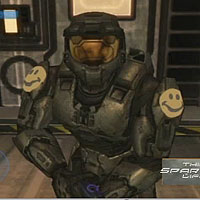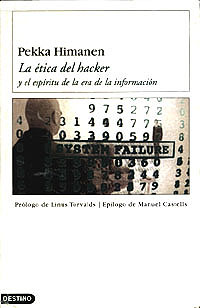:: Wednesday, August 24, 2005 ::
 Review of The Virtual Obelisk
Review of The Virtual Obelisk
by Andrew Bucksbarg
This Spartan Life A Talk Show in Game Space
http://thisspartanlife.com
Virtual reality, once the exciting obelisk that held our gaze in the '90s, and consequently losing its shiny hum, now holds promise in the multi-user online microworld relationships it fosters. The power of this technology, aside from its dark partner in war simulation and training, is how we use it to create new forms of creativity, critique and communication. We generally think of a network as bringing people together, but networks also embody separation. Network technology functions by compressing the information space and providing multi-directional information flows to users on geographically expanded nodes. Synthetic worlds change this. People on the network come together in synthetic worlds to create, communicate and recreate in a simulated space. This is already occurring in online multi-player games and environments like Second Life (http://secondlife.com), which include their own economies. Objects and land can be created, bought and sold and complex social transactions take place on servers in these ephemeral, digital realms.
Simulated environments provide a digital frontier for creativity, critique and exploration. Artists, creatives and producers like Chris Burke are doing just that- hacking the corporate behemoth technology of an online multi-user game environment, based on war game simulation, to create a talk show recorded live in game space. Chris Burke's This Spartan Life is composed of a series of easily downloaded modules. The first episode includes virtual guests like electronic publisher Bob Stein, who created award winning CD-ROMs from the mid '80s on, as well as video artist Peggy Awesh who appropriates Lara Croft in her work. The Solid Gold Elite Dancers provide coordinated avatar dance moves to 8-bit music from hacked Nintendo Game Boys. The dancers show us that virtual space is no more about narrative than it is about performance and cyber-embodiment. Burke's This Spartan Life talk show reveals the potential for creativity, thought and communal space in synthetic worlds. Work like this is a short burst in the dawn of what the future holds in cyberspace. Long live the Virtual Obelisk!
 Review of Peka Himanen's Hacker Ethics and the Spirit of the Information Age
Review of Peka Himanen's Hacker Ethics and the Spirit of the Information Ageby Ignacio Nieto
Editado en el año 2001, en inglés, y posteriormente traducido al español, re- editado en Barcelona y reimpreso en Argentina el año 2002, este libro nos da cuenta de una forma de pensar y desarrollar socialmente el uso de las tecnologías de la información. Este espíritu nacido en los años '60 en el MIT (Michigan Institute of Technology), según Himanen, pretende poner a disposición el código, para que las personas tengan un acceso libre a él, pudiéndolo probar, desarrollar y crear a partir de una base determinada. Este tipo de producción colaborativa se opondría a la actitud establecida por el trabajo individual, forzada desde el dinero para satisfacer beneficios personales traducidos generalmente en productos de consumo masivo, cuestionando una y otra vez la obra de Max Weber: La Etica Protestante y el Espiritu del Capitalismo.
-------
Edited in 2001, in english, and then translated to Spanish, re-edited in Barcelona and re-printed in Argentina in the year 2002, this book tells us about a way of social thinking and developing the use of information technologies. This spirit, born during the '60s in MIT (Michigan Institute of Technology), says Himanen, pretends to put code available, so that people can have a free access to it, being able to test it, to develop and create starting from a specific base. This kind of collaborative production will be against the established attitude of individual working, forced by money to satisfy personal benefits, that usually means products of masive spent, arguing over and over the job of Max Weber: The Protestant Ethics and the Spiritu of Capitalism.